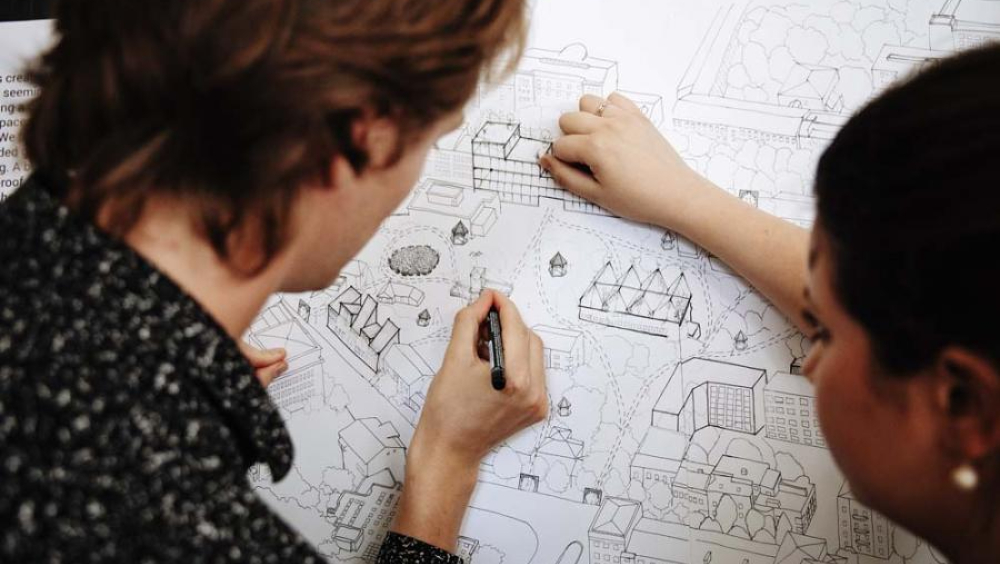Modernism for the future
Kaunas Modernism 360/365 The aim of the project is to strengthen the identity of Kaunas as a modernist city. Number 360 symbolises all possible perspectives of modernism: cultural, political economical, etc. Number 365 refers to the attention to the everyday heritage. It is more than visits to churches and museums on special occasions, but also the everyday architecture: residential buildings, industrial and entertainment facilities. The project includes a heritage community, gathered on the basis of the website www.modernizmasateiciai.lt, collecting and sharing knowledge about modernist objects of Kaunas and other Lithuanian and European cities, their residents and events. Dissemination of good practice, creative workshops, educational activities. Calls for artists and residencies designed to carry out artistic interpretations of modernism and created artistic projects in the modernist spaces. Various collaborations with local and foreign partners.
During the Interwar Period, Kaunas and Kaunas District have become the epicentre of significant events taking place in Lithuania and Europe. This period has left over 6000 buildings created in the modernist spirit that have survived to this day. But these are not only buildings, but also places, their authors, builders, and promoters. Their destinies too. To have such a condensed heritage enriched by various individual stories and meanings is a great treasure. It is a living testament of history from the period of prosperity and modernisation that changed the everyday habits and coincided with great changes in European and global cities, urban places and their residencies. Within a short period of time, modernism has become a dominating style of architecture. However, today, most of these buildings are in poor condition, forgotten, abandoned or even empty. What can we do to change it? First of all, to create an emotional connection with this heritage. The programme of Kaunas 2022 European Capital of Culture “Modernism for the Future” is an open space for initiatives and meetings, welcoming professionals from various fields, building owners, heritage community and representatives of cultural initiatives for discussions, idea workshops, art and culture who together create the strategy for preservation, interpretation and dissemination of modernist heritage. Our goal is to awaken responsibility for the environment that surrounds us and create an emotional connection with the urban landscape and culture. The title of the European Capital of Culture is an accomplishment that enables a powerful impulse to create the success story of preservation of modernist heritage, where heritage is created by creating a contemporary presence. One of the project - Kaunas Modernism 360/365. The aim of the project is to strengthen the identity of Kaunas as a modernist city. Number 360 symbolises all possible perspectives of modernism: cultural, political economical, etc. Number 365 refers to the attention to the everyday heritage. It is more than visits to churches and museums on special occasions, but also the everyday architecture: residential buildings, industrial and entertainment facilities. The project includes a heritage community, gathered on the basis of the website www.modernizmasateiciai.lt, collecting and sharing knowledge about modernist objects of Kaunas and other Lithuanian and European cities, their residents and events. Dissemination of good practice, creative workshops, educational activities. Calls for artists and residencies designed to carry out artistic interpretations of modernism and created artistic projects in the modernist spaces. Various collaborations with local and foreign partners.
There are hundreds of places around the world, where modernism has had an important role shaping the local spirit, including Gdynia, Brno, Lvov, Harbin, Asmara, Yekaterinburg, etc. Kaunas is no exception. Despite political and cultural differences, these cities have shared the same global idea some time ago, and, today, shares the same architectural heritage, which is also the witness of progress and optimism that was prevailing in Europe and the world. Today it is important to reveal modernism as a European phenomenon and to strengthen the identity of modernist cities.
